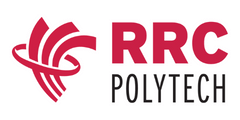 Clean Tech
Clean Tech Construction
Construction Hybrid
Hybrid Winter Term
Winter Term $500 - $1000
$500 - $1000 English
English
Students will learn how to conceptually design and analyze the costs of constructing a small building that adheres to Building Science principles, which will lead to an energy-efficient, quiet, dry and durable enclosure. Students will discuss the fundamental scientific principles that support the design and construction of a low energy, long lasting building. Students will then examine the benefits and differences between a building science approach and traditional building practices. Students will apply this knowledge to sketch, design and construct a scale, conceptual model of a small building. Finally, students will analyze the material costs of this building and revise the design accordingly.
The learner will:
It is known that 20% of Canada’s energy goes to heating and cooling. By introducing energy-efficient building science principles at the planning and design stage of building construction, we can contribute to an overall reduction in energy use. This microcredential will provide participants with the knowledge to consider energy efficiency at the beginning of construction planning, ensuring that structures are constructed with sustainability in mind. This will have the future benefit of reducing the amount of retrofitting that buildings will need as they age.
RRC Polytech also houses the Building Efficiency Technology Access Centre (BETAC), which could be utilized for the Building Envelope Science micro-credential series. With the facilities and expertise available at RRC Polytech, this micro-credential is sure to be the beginning stages of a suite of credentials that could continue past the life of this C2R2 initiative and contribute to a low-carbon future.
 Winter Term
Winter Term